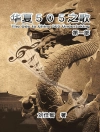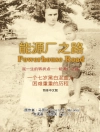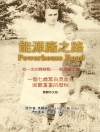This is a book about a girl who left home without quite meaning to. One evening, doing her algebra homework, the sixteen-year-old abruptly realizes the tight-knit fundamentalist community she has been raised in may not have all the answers it claims to have. Then what to do with her familiar, immersive life: Sunday School, church, prayer meetings, vacation Bible school, mother-daughter banquets, midnight vigils, revivals, and car washes?
In college, she discovers the language of poetry. It offers a path—through metaphor and imagery—that transcends the literalism and insularity of her childhood. Ahead of her lies a career as poet, playwright, essayist, and teacher.
Leaping from the Burning Train tells this story in loving and exuberant detail, without the self-righteousness that sometimes accompanies contemporary memoirs by those who have left conservative Christianity. Throughout her journey, including an early acquaintance with death and grief, the figurative language of poetry remains Jeanne Murray Walker’s constant companion. And that language, over time, sustains her in a deepened, more authentic form of the faith she never abandoned.
Tabella dei contenuti
Prologue
1 Leaping from the Burning Train
2 Buying the Cross at Bible Camp
3 Saving and Getting Saved
4 My Dead Brother Teaches Me to Travel
5 Shakespeare Asks to Meet My Mother
6 Writing as a Subversive Activity
7 Saving Images
8 Like Postcards from a Friend
9 How to Read a Poem
10 Diary of a Rehearsal
11 The Communion of Saints
12 Christmas: The View from Prison
13 Deeper Than Memory
Circa l’autore
Jeanne Murray Walker was born in Parkers Prairie, Minnesota. She is the author of nine volumes of poetry, including Pilgrim, You Find the Path by Walking, and a memoir, The Geography of Memory. A former professor at The University of Delaware, she also served as a mentor in the Seattle Pacific University MFA Program.












